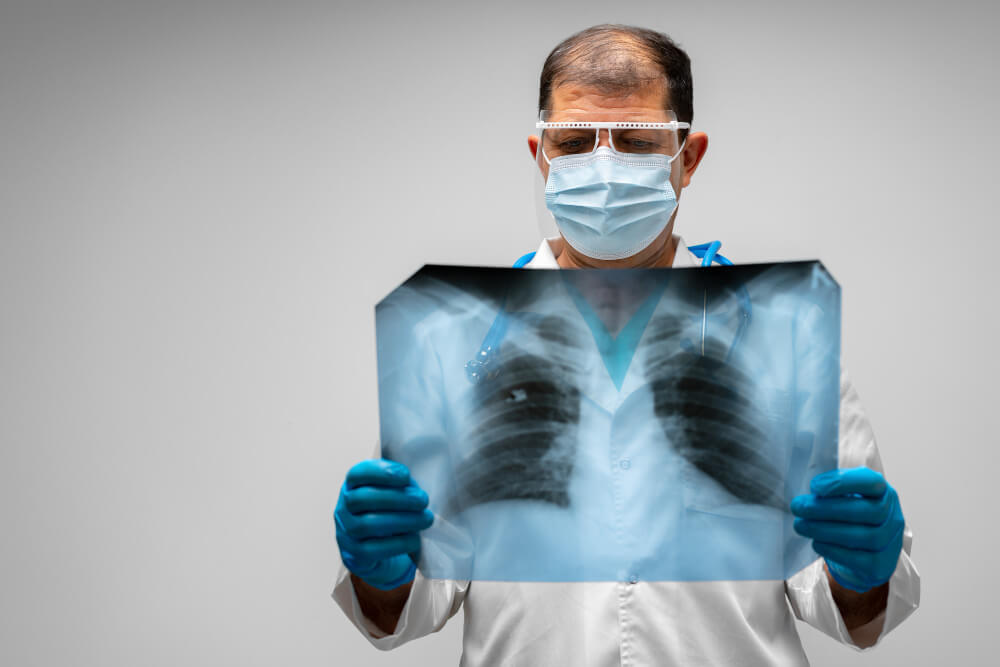COPD, or Chronic Obstructive Pulmonary Disease, is a prevalent respiratory condition that affects millions worldwide, impacting lung function and overall quality of life. With over 25 years of specialised practice in Respiratory Medicine, Infectious Diseases, and Tuberculosis, Dr. Kumar Doshi provides invaluable insights into understanding COPD, its causes, symptoms, diagnosis, treatment, and management strategies. In this comprehensive article, we delve into COPD and Dr. Doshi’s expert guidance on managing this chronic respiratory condition effectively.
What is COPD (Chronic Obstructive Pulmonary Disease)?
COPD is a progressive lung disease characterised by persistent respiratory symptoms, airflow limitation, and reduced lung function due to chronic bronchitis and/or emphysema. Dr. Doshi explains that COPD primarily results from long-term exposure to respiratory irritants (cigarette smoke, air pollution, occupational dust, chemical fumes) leading to airway inflammation, mucus production, bronchial constriction, and alveolar damage, requiring prompt diagnosis and appropriate treatment to control symptoms, prevent exacerbations, and support respiratory health.
Causes of COPD
- Smoking: Tobacco smoking is the leading cause of COPD, exposing individuals to harmful chemicals, toxins, and irritants that damage airways, impair lung function, and increase COPD risk. Dr. Doshi emphasises the importance of smoking cessation, avoiding secondhand smoke exposure, and implementing tobacco control measures to reduce smoking rates, protect lung health, and prevent COPD development.
- Environmental Factors: Prolonged exposure to indoor/outdoor air pollution, occupational dust, chemical fumes, biomass fuels, and respiratory irritants can contribute to COPD development, exacerbations, and disease progression. Dr. Doshi recommends identifying and avoiding respiratory irritants, using air purifiers, practising respiratory hygiene, wearing protective masks, and promoting clean air initiatives to reduce exposure, protect respiratory health, and manage COPD effectively.
- Genetic Factors: Genetic predisposition, alpha-1 antitrypsin deficiency, family history of COPD, and inherited respiratory conditions can increase COPD susceptibility, severity, and progression in some individuals. Dr. Doshi underscores the importance of genetic screening, early detection, personalized risk assessment, and tailored management strategies to identify at-risk individuals, optimize COPD care, and support overall well-being.
Symptoms of COPD
- Respiratory Symptoms: Common respiratory symptoms of COPD include chronic coughing (with or without mucus), wheezing, chest tightness, shortness of breath, rapid or shallow breathing, fatigue, and reduced exercise tolerance, indicating airflow limitation, lung inflammation, and impaired respiratory function. Dr. Doshi emphasizes the importance of recognizing COPD symptoms, monitoring breathing patterns, and seeking medical evaluation to identify underlying causes, assess lung function, and implement appropriate treatment strategies.
- Systemic Symptoms: Systemic symptoms of COPD may include weight loss, muscle weakness, depression, anxiety, sleep disturbances, and reduced quality of life, indicating systemic inflammation, metabolic changes, and functional impairment affecting overall health and well-being. Dr. Doshi recommends monitoring systemic symptoms, promoting physical activity, practising stress management, improving sleep hygiene, and seeking medical attention if symptoms persist, worsen, or are accompanied by severe respiratory distress.
Diagnosis and Treatment of COPD
- Diagnostic Tests: Dr. Doshi emphasizes the importance of performing diagnostic tests, such as spirometry, chest X-rays, blood tests, pulmonary function tests (PFTs), imaging studies, and bronchoscopy, to identify COPD, assess lung function, determine disease severity, and develop personalized COPD treatment plans according to Dr. Doshi’s expert guidance.
- Treatment Strategies: Implementing targeted treatment strategies, including bronchodilators (short-acting and long-acting), inhaled corticosteroids, combination inhalers, oxygen therapy, pulmonary rehabilitation, respiratory therapies, nebulizers, surgical interventions (lung volume reduction, lung transplant), and supportive care, according to Dr. Doshi’s expert guidance, can help manage COPD symptoms, improve lung function, enhance exercise capacity, reduce exacerbations, control disease progression, and support respiratory health.
- Management and Prevention: Dr. Doshi recommends developing personalized COPD management plans, practising good respiratory hygiene, including cough etiquette, hand hygiene, covering coughs and sneezes, avoiding close contact with sick individuals, maintaining a healthy lifestyle, managing chronic conditions (hypertension, diabetes, heart disease), practising smoking cessation, participating in pulmonary rehabilitation, using inhalation devices correctly, and following preventive strategies (vaccinations, infection control) to manage COPD effectively, reduce recurrence, protect respiratory health, and ensure long-term respiratory health and vitality.
Conclusion
Understanding COPD, recognizing symptoms, identifying risk factors, implementing targeted treatment strategies, and following Dr. Kumar Doshi’s expert guidance on diagnosis, treatment, and management are essential for managing this chronic respiratory condition effectively, controlling symptoms, improving lung function, reducing exacerbations, preventing complications, and ensuring long-term respiratory health and vitality.
By understanding COPD, seeking timely medical attention, following recommended treatment regimens, practicing preventive measures, and embracing a proactive approach to respiratory care, you can take proactive steps to protect, support, and optimize lung function, ensure optimal respiratory health, vitality, and quality of life, and benefit from Dr. Doshi’s expert advice on COPD and respiratory well-being.

